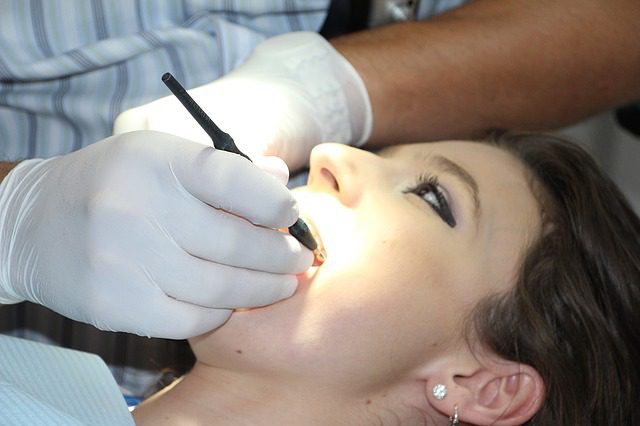Can an older adult still have an operation performed to take all four wisdom teeth out? Yes. You’re never too old to get your wisdom teeth removed. Especially if they begin to cause problems for you later in life like teeth crowding or consistent pain—book a trip to chat with your local oral surgeon asap. Admittedly, getting it done in your late teens to early 20’s is ideal, but it doesn’t mean that as a 50 or 60 year-old, you’re out of luck if you need your wisdom teeth extracted. You just won’t be as spry as that 15 year-old coming out of what for them was a quick and pain-free wisdom tooth extraction. Nothing that your dental surgeon with plenty of experience can’t handle.
There are definitely some differences to the procedure, healing time and recovery, but oral surgeons are so used to all types of wisdom tooth extractions – it’s not hard for them to tailor solutions for older adults. It’s not unheard of in the slightest and plenty of people seek out oral surgeons specializing in wisdom tooth removal for older adults. It’s not like the pain and discomfort impacted wisdom teeth cause just wouldn’t affect adults over a certain age. The process of removing wisdom teeth in an older adult is a bit more involved than in young adults, though, because of the higher bone density, and because the wisdom teeth are fully developed by your mid-20’s. So, let’s take a look at the unique challenges older adults face with wisdom tooth removal in later life and how with a dedicated dental surgeon and some oral sedatives, you’ll be on your way to a full recovery.
Why You Might Need Your Wisdom Teeth Extracted Later in Life
The reality is that wisdom teeth present problems for a lot of patients. It’s simple, really—our mouths have evolved to be smaller and no longer have a practical use for the wisdom teeth. Like some other vestigial traits though, they just don’t want to go away for good. If your mouth doesn’t have space to accommodate more teeth than you already have…well, you get the idea. It’s why most mouth surgeons who have experience with wisdom teeth will want to take them out when they first start breaking through the surface of your mouth.
Removing wisdom teeth at young adulthood is a preventative measure, more than anything, because wisdom teeth have the potential to cause a lot of problems. Left alone, wisdom teeth can cause crowding of your existing teeth, which affects your bite and how you chew. They can also become easily infected, leading to a slew of other problems. If you think you might be experiencing side effects from impacted or infected wisdom teeth, talk with your dentist or an oral surgeon you trust
On average, the removal age for people getting their wisdom teeth taken out is about 18-24 years old. However, if at that age your wisdom teeth developed and came in just fine, your dentist and oral surgeon probably agreed there was no reason to take them out. As the saying goes, if it’s not broke, don’t fix it. There isn’t any research to say that there’s a benefit to removing wisdom teeth that aren’t causing problems. But your body never stops moving and changing as you age. So just because they weren’t causing a problem then, doesn’t mean that now they couldn’t be the cause of your toothaches or gum disease.
Reasons you might need to get your wisdom teeth out as an older adult include:
- The wisdom teeth are pushing on other teeth, causing your bite to shift.
- You’ve developed periodontitis (gum disease) as a result of not being able to properly care for teeth that far back in your mouth.
- The tooth itself gets infected.
- A cyst has formed. These can result in serious infections and even damage or kill nerves.
- Wisdom teeth are by nature more susceptible to decay, breakage and other complications because they’re harder to brush and floss properly.
Wisdom teeth extraction in seniors happens more often than you’d think. It’s one of the many reasons that it’s so important for older patients to visit their local dentist for regular checkups. Even if wisdom teeth remain asymptomatic, that doesn’t mean that there’s not something going on under the hood. The sooner a licensed oral surgeon is able to extract the wisdom teeth, the less likelihood of further complications occurring. By taking x-rays of the mouth, a dentist can catch early warning signs.
How to Tell You Might Need Wisdom Teeth Removed
Generally speaking, there are plenty of signs to watch out for that would indicate your wisdom teeth need to be taken out of your mouth. Left to linger, infected or decaying wisdom teeth can cause a bunch of problems for your mouth—not to mention it’s downright painful. If you’ve never had your wisdom teeth taken out, call your dentist if you start experiencing any of these symptoms:
- Swelling of the gums near the back of your mouth
- Repeatedly getting cavities
- Chronic headaches
- Tenderness of the jaw at the back of your mouth
- Bleeding gums
- Sinus issues
- Jaw stiffness/ trouble chewing
- Halitosis (bad breath)
If you need infected wisdom teeth taken out, an oral surgeon local to your area can help out. As an adult, extraction is a lengthier process due to the bone density of the jawbone being greater than a kid’s. Otherwise, the procedure is largely the same. You can expect your surgeon to still give you a healthy dose of sedatives used in oral surgeries keep you unconscious for the procedure and to help with pain. Due to the more involved nature of the operation for adults, there’s technically a higher risk of complications like dry sockets and possible nerve damage.
Wisdom Tooth Extraction Consultations in Older Adults
The other thing that differs in geriatric patients who are looking to have all four wisdom teeth extracted is the consultation process. Well, on the patient end, it’ll be similar enough to how an oral surgeon would handle wisdom teeth extraction assessments with anyone else. On the back end, though, the surgeon needs to obtain and create more detailed imaging than standard. This helps them assess nerve proximity and the structure of the jawbone more efficiently.
When patients are in their late teens and early 20s, their jawbone is much more malleable—it’s one of the reasons that seeing a dentist who extracts wisdom teeth happens more commonly for that age bracket. When a patient is older, their jawbone is much harder to work around, and nerves are often more developed too. It’s important at these consultations or assessments to fully disclose previous medical history and any current medications being taken.
Sedation Options for Senior Patients Who Need Wisdom Tooth Extraction
Almost all cases of fully removing all wisdom teeth from the mouth will require some form of sedation. Naturally, older adults tend to prefer lighter sedatives where possible. Some want to opt into general anesthesia to be fully unconscious for the procedure, but there are plenty of sedation options to maximize comfort and minimize pain when you’re an older patient coming in for wisdom teeth extraction.
Adults can easily get away with IV sedation and a numbing agent for their surgery. Neither of these puts patients to sleep—in fact, IV sedation keeps the patient awake, but in a highly relaxed state where they typically don’t even remember the operation. Other options like nitrous oxide also exist for when patients only need mild relaxation.
How Healing Time for a Wisdom Tooth Extraction Differs for Adults
Being completely honest, wisdom tooth removals in older adults includes a lengthier and more uncomfortable recovery process. When you’re young, you’ve got three things going for you that make the process of wisdom tooth extraction easy:
- You have lower bone density,
- Your wisdom teeth aren’t fully formed, and
- Your body’s ability to regenerate bone is at top form.
Once you’re a ways into adulthood, age creeps in. Your bone density rises, your wisdom teeth root themselves in your jaw, and your ability to regenerate bone tissue slows. That means that (a) during the procedure itself, the oral surgeon often has to take more bone from the jaw than they would a younger person, and (b) there is a longer and more precarious healing time after the procedure. The whole recovery process takes about 2 weeks or so for most adults. Which honestly still isn’t that bad, and most people don’t need heavy pain medication and can opt for holistic post-care for oral surgeries. Your surgeon will go over post-care with you and give you specific instructions. Most of them will include rest, soft foods, and excellent oral hygiene.
But, don’t worry; it’s really not all that scary. It just takes a little extra self-care, a couple extra days off work, and intentional, consistent communication with your dentist and oral surgeon after you’ve had the wisdom teeth removed. At the end of the day, a few days of discomfort is a small price to pay for preserving the health of your mouth and jaw.








